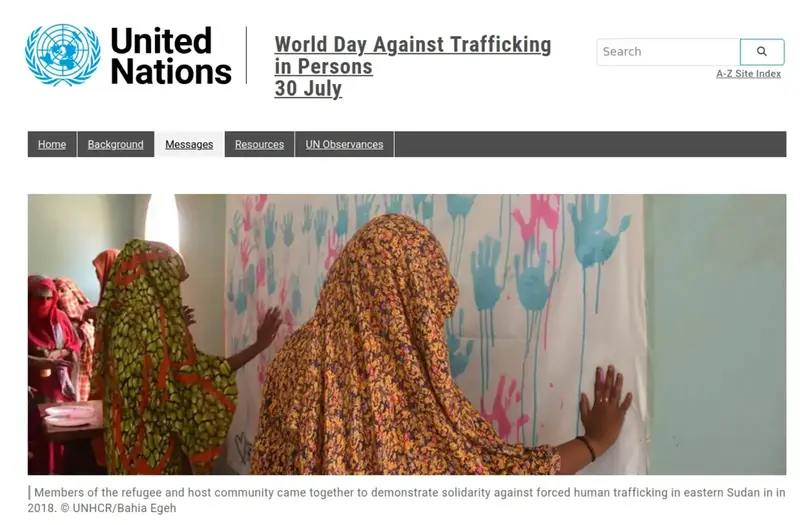World Day Against Trafficking in Persons 2024: Victims' Rights – A Path to Justice
This article highlights the significance of World Day Against Trafficking in Persons observed annually on July 30th, focusing on the 2024 theme, ‘Victims’ Rights – A Path to Justice.‘ It discusses human trafficking as a severe form of human rights abuse, its global impact, and the importance of respecting, protecting, and fulfilling victims' rights for their access to justice and recovery.
World Day Against Trafficking in Persons, commemorated every year on July 30th, stands as a crucial global occasion to address and combat human trafficking. Established by the United Nations General Assembly in 2010, this day serves as a rallying point to heighten awareness, share best practices, and mobilize concerted efforts to prevent and eradicate this egregious crime.
Human trafficking represents a grievous violation of human rights, constituting a modern-day form of slavery. The United Nations Office on Drugs and Crime (UNODC) defines it as the recruitment,transportation, transfer, harboring, or receipt of people through theuse of threat, force, coercion, abduction, fraud, deception, or abuse of power for exploitative purposes, such as forced labor, sexual exploitation, removal of organs, and other forms of slavery-like practices.
This 2024 year’s World Day Against Trafficking in Persons theme, ‘Victims’ Rights – A Path to Justice,‘ accentuates the criticality of respecting, protecting, and fulfilling the rights of trafficking victims and survivors to ensure their access to justice and recovery. It underscores the collective responsibility of nations, civil society, and individuals to collaborate in implementing preventive measures, offering assistance to victims, and prosecuting offenders.
To delve deeper into understanding World Day Against Trafficking in Persons and discover ways to contribute to the global struggle against human trafficking, consult resources from esteemed organizations like the United Nations Office on Drugs and Crime (UNODC), the International Labour Organization (ILO), and non-governmental organizations such as Anti-Slavery International.
